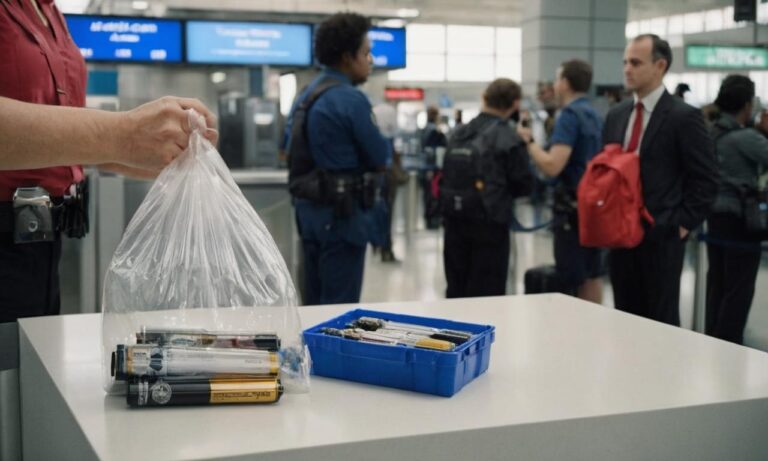Traveling by air often raises questions about what items can be brought on board, and batteries are no exception. Whether you’re a frequent flyer or a first-time traveler, understanding the rules and regulations regarding carrying batteries on a plane is crucial to ensure a smooth journey.
Understanding Airline Regulations
Each airline may have its own set of rules when it comes to bringing batteries on board. It is essential to check with your specific airline before packing your bags. In general, most airlines allow passengers to bring common types of batteries in their carry-on luggage.
Types of Batteries Allowed
Common household batteries, such as AA, AAA, C, and D batteries, are typically allowed in carry-on luggage. These batteries are commonly used in everyday devices like flashlights, remote controls, and small electronic gadgets. Lithium-ion batteries, commonly found in electronic devices like cameras and laptops, are also generally permitted in carry-on baggage.
Lithium-ion Batteries
Lithium-ion batteries are widely used in electronic devices due to their high energy density. When carrying devices containing lithium-ion batteries, it’s important to note that most airlines restrict spare or loose lithium-ion batteries in checked luggage. These batteries should be kept in their original packaging or placed in individual plastic bags to prevent short circuits.
Carry-On vs. Checked Luggage
While many batteries are allowed in carry-on luggage, restrictions may apply to batteries in checked baggage. It’s advisable to pack batteries in your carry-on bag to ensure they are easily accessible and to comply with airline regulations.
Special Considerations for Rechargeable Batteries
Rechargeable batteries, including power banks and portable chargers, are commonly used by travelers. These items are generally allowed in carry-on luggage, but airlines may have specific guidelines on their capacity. It’s recommended to check with your airline to ensure compliance with their policies regarding rechargeable batteries.
Additional Tips for Traveling with Batteries
To make your air travel experience smoother, consider the following tips when bringing batteries on a plane:
- Keep batteries in their original packaging or place them in individual plastic bags to prevent short circuits.
- Securely pack batteries to prevent damage or contact with other metal objects.
- Ensure that electronic devices containing batteries are turned off during the flight.
- Check with your airline for any specific requirements or restrictions regarding batteries.
Traveling with batteries on a plane is generally allowed, but it’s crucial to be aware of specific airline regulations and guidelines. By understanding these rules and following best practices, you can ensure a hassle-free journey without any concerns about your batteries.
Frequently Asked Questions
Travelers often have questions about bringing batteries on a plane. Here are some frequently asked questions to provide further clarity:
Can I Bring Large Batteries on a Plane?
The acceptability of large batteries, such as car batteries, varies among airlines. It’s recommended to check with your airline in advance and consider transporting large batteries in accordance with their guidelines.
Are Drone Batteries Allowed?
Batteries used in drones, especially lithium polymer (LiPo) batteries, may have specific regulations. Ensure that drone batteries are carried in your carry-on luggage and adhere to any capacity restrictions imposed by the airline.
Understanding Security Screening
Security screening procedures may involve additional scrutiny for batteries. To facilitate the screening process:
| Tip | Description |
|---|---|
| Separate Batteries | Place batteries in a separate container or plastic bag for easier inspection during security checks. |
| Declare When Necessary | Declare any large or unusual batteries to security personnel before screening begins. |
International Travel Considerations
For those traveling internationally, it’s essential to be aware of specific regulations and restrictions imposed by different countries. Customs and airline policies may vary, so research the guidelines of your departure and arrival destinations.
Can I Bring Spare Laptop Batteries?
Most airlines allow spare laptop batteries in carry-on luggage. However, it’s advisable to check the airline’s policy, as restrictions on spare batteries may apply.
Conclusion
Understanding the nuances of bringing batteries on a plane ensures a seamless travel experience. By addressing common questions, considering security screening, and being aware of international travel considerations, you can navigate airline regulations confidently.






